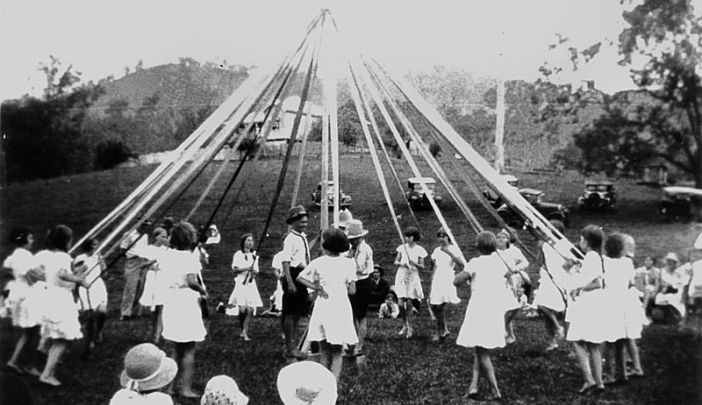The Origins of May Day
Employees of Dublin Bus are beginning a two-day strike today and they chose a very apt day to do so, because it is International Workers’ Day, or May Day, today.
May Day celebrations have taken place since pre-Christian times when it was a way of giving thanks to Flora, the Roman Goddess of flowers and spring. In Ireland, festivities have taken place since pagan times as the feast of Bealtaine. Bonfires were lit to represent the end of the cold, dark winter and to mark the coming of light and warmth. While in England, May Day was celebrated with Morris dancing, crowning a May queen and dancing around a maypole.
May 1st later became a traditional holiday, because it is the first day of summer. In Ireland the first Monday in May is always a bank holiday. It does not have any link to mayday, the distress signal, which comes from the French phrase ‘m’aidez’, or ‘help me’.

It wasn’t until the 19th century that May 1st was also chosen to mark International Workers’ Day. In 1889 as labour and trade union movements grew strong, this date was chosen by Socialists and Communists of the Marxist alliance, the Second International, to commemorate the Haymarket Affair, which took place in Chicago on May 4th, 1886. This was a peaceful workers’ demonstration that took place in Haymarket Square. The men were striking for an eight-hour work day when a bomb was thrown at the police, resulting in the deaths of seven officers, four protesters and many injuries. May 1st is now a day to celebrate labourers and the working class throughout the northern hemisphere.
In 1955 the Catholic Church also dedicated this day to workers. When rearranging the Catholic calendar, May Day became the feast day for Saint Joseph, who is the patron saint of workers and craftsmen. In Ireland the Irish Congress of Trade Unions (ICTU), which represents 55 Irish unions, organise rallies and parades in Dublin and Belfast to mark the date. Other events, such as lectures, concerts and films, are usually part of the festivities as well. This year the ICTU’s annual May Day parade will be taking place on Saturday
May 1st has become a focal point for demonstrations by various socialist, anarchist and trade union groups. Today Dublin Bus and Bus Eireann employees are striking, because of the planned privatisation of a section of the bus companies. They want to ensure that workers rights will remain in place through a six-point plan if the privatisation takes place.
